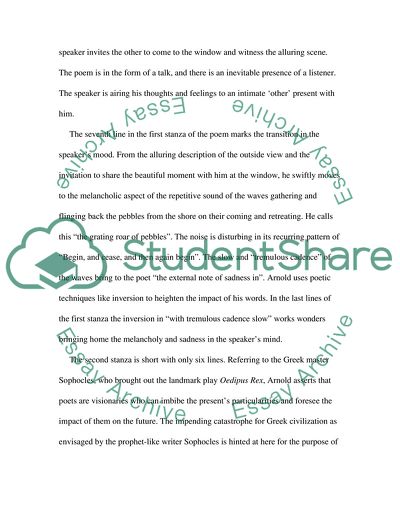Cite this document
(“Victorian Anguish in Mathew Arnolds Dover Beach Essay - 2”, n.d.)
Victorian Anguish in Mathew Arnolds Dover Beach Essay - 2. Retrieved from https://studentshare.org/literature/1545687-poetry-essay
Victorian Anguish in Mathew Arnolds Dover Beach Essay - 2. Retrieved from https://studentshare.org/literature/1545687-poetry-essay
(Victorian Anguish in Mathew Arnolds Dover Beach Essay - 2)
Victorian Anguish in Mathew Arnolds Dover Beach Essay - 2. https://studentshare.org/literature/1545687-poetry-essay.
Victorian Anguish in Mathew Arnolds Dover Beach Essay - 2. https://studentshare.org/literature/1545687-poetry-essay.
“Victorian Anguish in Mathew Arnolds Dover Beach Essay - 2”, n.d. https://studentshare.org/literature/1545687-poetry-essay.


